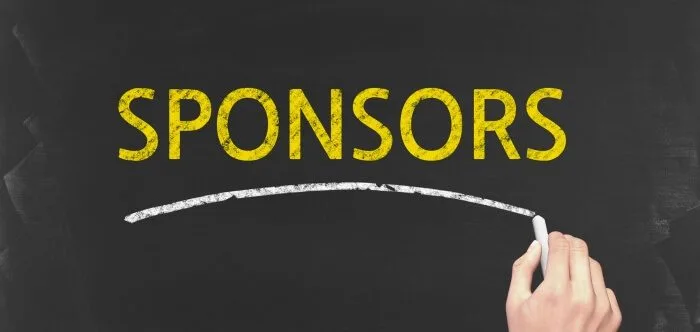Sponsorship plays a crucial role in the success of conferences, providing essential support that goes beyond mere financial assistance. For businesses, sponsorship is a strategic investment that amplifies their presence and influence within the industry. If you’re wondering, “What are the goals of sponsorship for conferences?” you’re likely curious about how this partnership can impact your business.
The goals of conference sponsorship include increasing brand visibility, developing valuable networking opportunities, and establishing industry leadership. Sponsors also gain access to new client bases and demonstrate their support for industry development. These objectives are key to maximizing the benefits of your sponsorship efforts.
Still curious to learn more about the goals and impact of conference sponsorship? Continue reading to explore the detailed insights provided in this article, which covers everything you need to know about using sponsorship for business success.
Who is a Sponsor at the Conference?
A sponsor at a conference is typically a business or organization that financially supports the event. This support is not just monetary; it often includes providing resources or services. In return, sponsors receive recognition and opportunities to promote their brand.
These entities are key to a successful conference. They help cover costs, making the event more accessible and enriching for attendees. Sponsors are seen as key contributors to the industry, gaining respect and visibility.
Their involvement goes beyond just having their logo displayed. Sponsors engage with attendees, showcase their expertise, and sometimes lead sessions or panels. This active participation allows them to directly connect with their target audience.
What the Conference Sponsorship is About?
Conference sponsorship is a powerful way for businesses to increase their visibility and influence within an industry. By supporting these events, sponsors gain access to a captive audience, directly relevant to their market. It’s a unique opportunity to showcase products, services, and brand values.
Engaging in sponsorship at conferences is not just about brand visibility, it’s also about building meaningful connections. Networking is a key benefit, allowing companies to interact with potential clients, partners, and industry leaders. Depending on the levels of sponsorship in a conference, companies may gain exclusive opportunities to connect more closely with key stakeholders. This interaction creates relationships that can lead to collaborative opportunities and business growth.
Moreover, being a sponsor at a conference positions a company as a thought leader in its field. It demonstrates a commitment to the industry’s advancement and support for its core themes and discussions. This kind of participation improves a company’s reputation and visibility among peers.
How Does Conference Sponsorship Work?
A conference sponsorship is a partnership that allows companies to support events financially in exchange for potential promotional opportunities. Understanding how it works can be key to unlocking its potential for your business.
Partnership Agreements
The sponsoring company and the organizers of the conference sign a formal sponsorship agreement. This contract outlines the terms, benefits, and obligations of both parties. By clearly defining expectations, both the sponsor and the organizer ensure a successful partnership. A well-structured agreement sets the stage for smooth collaboration and maximizes the benefits for everyone involved.
Financial Support
Sponsors provide financial support to events, covering expenses such as venue rentals, marketing, and logistics. This financial support is crucial to the event’s success and sustainability. Without sponsors, many conferences would struggle to offer the excellent experiences attendees expect. The funding from sponsors ensures that the event can meet its objectives and provide value to participants.
Promotional Opportunities
There are many promotional opportunities for sponsors, including logo placement on event materials, speaking slots, and branded exhibition areas. These opportunities significantly enhance brand exposure and recognition. By showcasing their brand at a well-organized event, sponsors can increase their visibility within the industry. This publicity helps build a reputation and attracts potential customers.
Targeted Audience Reach
Events attract a specific audience that aligns with sponsors’ products or services. This focused demographic ensures that sponsor messages connect with potential customers. Sponsors benefit from this targeted promotion because the audience is more likely to be interested in their offerings. Reaching the right people in the right setting increases the effectiveness of the sponsorship and leads to better engagement.
Engaging Attendees
Through product demonstrations, giveaways, or interactive experiences, sponsors go beyond traditional advertising. Sponsors can build stronger relationships with their audience when they create memorable experiences. Engaging directly with attendees helps to solidify the sponsor’s presence at the event by building connections with potential customers and leaving a lasting impression.
Conference sponsorship offers businesses a strategic way to improve visibility and build meaningful connections. For continued success, focus on measuring conference sponsorship success to refine strategies and maximize future opportunities.
What Are the Goals of Sponsorship for Conferences?
Conference sponsorship is a strategic move for businesses aiming to expand their influence and network. It’s an investment that goes beyond financial aspects, focusing on brand growth and industry presence. Here is the explanation of what are the goals of sponsorship for conferences:
Increasing Brand Visibility
Sponsorship puts a brand in the spotlight, offering significant exposure to a relevant audience. This visibility goes beyond just logo display; it’s about associating the brand with industry-leading events. If you’re sponsoring global events like an international conference in Canada, it provides a prime platform to showcase products or services to a targeted demographic. This increased visibility is crucial for building brand recognition and recall.
Networking Opportunities
Conferences gather like-minded professionals and potential clients under one roof. Sponsors take advantage of this setting to build valuable connections. Networking at these events can lead to fruitful partnerships and customer acquisitions. It’s an opportunity to interact, share ideas, and expand professional networks.
Establishing Industry Leadership
By sponsoring, companies position themselves as key players in their industry. This leadership stance is vital for building authority and trust. It sends a message of commitment to industry advancement and innovation. Such a position often translates into increased respect and credibility among peers.
Accessing New Client Bases
The variety of attendees at conferences offers sponsors an opportunity to reach new markets. This visibility can open doors to unexplored customer segments. It’s a unique opportunity to understand and engage with potential new clients. These new connections can significantly boost a company’s customer base.
Demonstrating Industry Support
A sponsor is also committed to the growth and development of the industry. It’s a way to support the themes and discussions that shape the sector. This support strengthens relationships with industry bodies and professionals. It reflects a company’s dedication to contributing to the industry’s future.
Measuring Marketing Impact
Conference sponsorship provides measurable marketing outcomes. It allows companies to measure the effectiveness of their brand strategies in a live setting. The feedback and data gathered are invaluable for refining future marketing efforts. This aspect of sponsorship helps in fine-tuning brand positioning and strategies
Conference sponsorship is a powerful tool for businesses that want to increase their visibility, network with other businesses, and establish themselves as leaders in their field. By understanding the benefits of sponsoring a conference businesses can maximize their impact, build reputation, and drive long-term success.
Common Barriers Conference Sponsors May Face While Sponsoring Conferences
It can be profitable to sponsor a conference, but it isn’t without its challenges. Identifying and understanding common barriers helps sponsors navigate and maximize their conference experience. Here are some typical obstacles sponsors may face.
- Budget Limitations: Sponsoring events can be expensive, often requiring significant financial investment. Companies must balance the cost against the expected return on investment, which can be challenging.
- Target Audience Alignment: Sometimes the conference audience may not align perfectly with the sponsor’s target market. This mismatch can lead to less effective engagement and reduced impact of sponsorship efforts.
- Limited Visibility and Recognition: At crowded events, getting noticed can be difficult. Sponsors may struggle to stand out among multiple sponsors and exhibitors.
- Complex Negotiation Processes: It can be difficult and time-consuming to negotiate sponsorship terms. Sponsors often face challenges in securing favorable terms that align with their marketing goals.
- Logistical Challenges: Coordinating the logistics of conference participation, like setting up booths or arranging presentations, can be daunting. These logistical challenges can detract from the overall experience and effectiveness.
- Inconsistent Communication: Effective communication with event organizers is crucial but can sometimes falter. Misunderstandings or delays in communication can impact the execution of sponsorship plans.
- Measuring ROI: Determining the return on investment (ROI) from conference sponsorships can be complex and unclear. Sponsors may find it hard to quantify the benefits in practical terms.
By overcoming these challenges, you are more likely to have a successful and rewarding sponsorship experience.
FAQs: What Are the Goals of Sponsorship for Conferences?
Understanding the goals of sponsorship for conferences is essential for companies looking to make strategic investments in their industry presence. Below are some frequently asked questions that provide more specific aspects of conference sponsorship, offering insights that can help you maximize your sponsorship efforts.
How Can Sponsorships Help in Increasing a Company’s Market Position?
The alignment of the brand with industry-leading events can significantly improve a company’s market position. This partnership not only boosts visibility but also positions the company as a key player within the industry, increasing its reputation and influence among peers and potential customers.
What Role Does Sponsorship Play in Brand Differentiation?
By aligning their brands with prestigious events, companies can stand out in a competitive market. This differentiation is crucial for building a unique brand identity that connects with target audiences, helping the company to be more recognizable and memorable.
Can Sponsorship Help in Building Long-Term Business Relationships?
Yes, conference sponsorship can serve as a powerful tool for building long-term business relationships. By actively engaging with industry leaders, peers, and potential clients at these events, sponsors can create connections that may lead to enduring partnerships and collaborations.
How Does Sponsorship Influence a Company’s Corporate Social Responsibility (CSR) Goals?
Sponsorship at conferences often aligns with a company’s Corporate Social Responsibility (CSR) goals by supporting industry growth and development. This alignment demonstrates the company’s commitment to positive industry advancements, which can enhance its reputation and strengthen its CSR profile.
What Are the Benefits of Sponsorship in Terms of Customer Loyalty?
Sponsorship can positively impact customer loyalty by reinforcing the brand’s commitment to industry leadership and community engagement. When customers see a brand actively supporting important industry events, it strengthens their trust and loyalty, leading to long-term customer retention.
Bottom Line
Conference sponsorship can significantly enhance a company’s market presence if a company understands its importance. When considering what are the goals of sponsorship for conferences, it becomes clear that these objectives include increasing brand visibility, creating valuable connections, and establishing industry leadership. By achieving these goals, sponsors can maximize their impact at events.
As you explore the world of conference sponsorship, keep a few key tips in mind. Research your target audience, clearly define your objectives, and maintain open communication with event organizers. By doing so, you can ensure a successful and rewarding sponsorship experience. Best wishes as you begin on this adventure!








